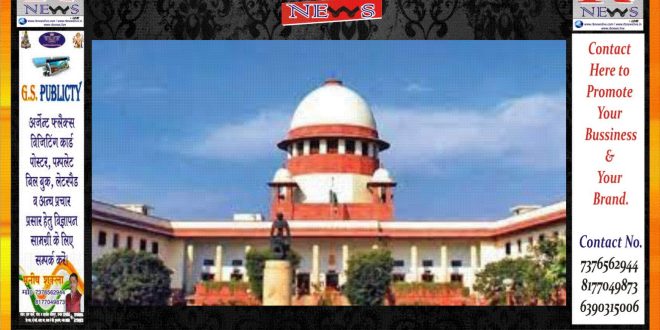The Supreme Court banned the electoral bond scheme. This matter was pending in the court for a long time. Yesterday the Supreme Court declared electoral bonds unconstitutional and banned them. The court said that electoral bonds are a violation of the Right to Information i.e. RTI. Voters have the right to know about the funding of parties. The court said that anonymous electoral bonds will not stop black money. He will definitely get a boost. We cannot turn a blind eye to the possibility of misuse. Curbing black money cannot be the basis of electoral bonds.
The Supreme Court said that this is in accordance with the provisions of Section 29(c)(a) of the Representation of the People Act, 1951 (as amended by Section 137 of the Finance Act, 2017) and Section 182(iii) of the Companies Act (as amended by Section 11 of the Finance Act, 2017). Are against Article 19(1)(a) and unconstitutional. The case was being heard by a five-member bench of CJI DY Chandrachud. The bench included Justice Sanjeev Khanna, Justice BR Gavai, Justice JB Pardiwala and Justice Manoj Mishra. While delivering the verdict, CJI DY Chandrachud made many strong remarks. Let us know what are those 5 strict comments which CJI DY Chandrachud made during the hearing on the electoral bond case-
1. Violation of Right to Information (RTI)
The biggest debate during the hearing on the case was on the issue of whether the general public should have access to information about donations received by a political party or not. Earlier, during the hearing on November 2, the court had objected to the fact that voters do not have the right to know the identity of the person giving donations. The court considered this a violation of the right to information.
During the hearing yesterday, CJI Chandrachud made a strong comment on this, saying, ‘The electoral bond scheme and the impugned provisions are such that they make contributions through electoral bonds anonymous and violate the voter’s right to information, as well as Article Also violates 19(1)(a). He said that not making public the information about donors is against the rules and is a violation of fundamental rights. CJI Chandrachud said that the fundamental right to privacy of citizens also includes the right to political privacy, association.
2. Instructions given to SBI and Election Commission
The court also objected to the fact that the Election Commission does not have information about how much donation was received from which party under the scheme. The court gave instructions to the Election Commission and State Bank of India regarding this. In this decision, which came before the Lok Sabha elections, CJI Chandrachud ordered the immediate closure of the scheme and the financial institution authorized for the scheme, State Bank of India (SBI), should submit the detailed details of the electoral bonds purchased from April 12, 2019 till now, to the Election Commission by March 6. Instructed to hand over.
As per the order of the Supreme Court, the Election Commission will provide information about the names of those who donated to this six-year-old scheme on its official website by March 13. SBI itself issues electoral bonds. The court also said that all the electoral bonds that have been encashed so far should be returned to the bank. The court said that SBI will have to give details of all the electoral bonds paid to political parties. This detail should also include the date on which the bond was redeemed and its amount.
3. Promotion of black money
CJI DY Chandrachud said that such purchases will promote black money. There are other options to stop black money. He said, ‘Electoral bond scheme is not the only means to curb black money in elections. There are other options which serve this purpose to a greater extent and have less impact on the right to information than the impact of electoral bonds on the right to information.’
CJI DY Chandrachud said that the integrity of the election process is important to maintain the democratic form of government and the Constitution also gives high priority to the conduct of free and fair elections. The bench said that electoral bonds provide selective anonymity to financially well-off donors before the public and not before the political party.
4. There is a violation of Article 19 (A)
The Supreme Court said that anonymous electoral bonds are a violation of Article 19 (1) (A) of the Constitution. CJI Chandrachud said that anonymous electoral bonds are a violation of freedom of speech and expression under Article 19(1)(A) of the Constitution. Article 19 (1) (A) gives citizens the right to freedom of speech and expression. This freedom can be in oral, written, electronic broadcast, press or any other form.
5. Against Section 182(3) of the Companies Act
The Supreme Court said that political donations received from a company have a more serious impact than contributions from an individual. The court has termed the contributions made by companies as purely commercial transactions. The Court also said that the amendment to Companies Act 182(3) clearly treats companies and individuals equally.
 RB News World Latest News
RB News World Latest News






